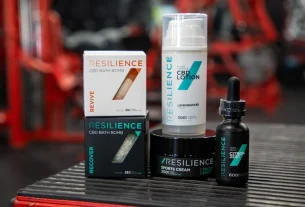Estimated Reading Time: 8 minutes
Estimated Reading Time: 8 minutes
HHy there, health enthusiasts! If you’re anything like me, you’re always on the lookout for ways to enhance your well-being naturally.
And in the ever-evolving world of health and wellness, CBD (cannabidiol) has become a popular topic.
But before you jump in, there’s one burning question on everyone’s mind: is CBD legal in the United States?
Let’s dive in and clear up any confusion, providing you with the latest insights for 2025.
The interest in CBD has exploded in recent years.
People are curious about its potential benefits, ranging from easing anxiety and pain to improving sleep.
With this surge in popularity, it’s crucial to understand the legal framework surrounding CBD, as it can vary depending on where you are and the source of the CBD product.
To truly understand is CBD legal in the United States, we need to look back at the 2018 Farm Bill.
This landmark legislation significantly impacted the legality of CBD at the federal level.
Before this, the status of CBD was, shall we say, complicated.
The 2018 Farm Bill essentially legalized hemp, which is defined as cannabis with 0.3% or less tetrahydrocannabinol (THC), the psychoactive compound in cannabis.
This pivotal bill clarified that CBD derived from hemp is legal on a federal level.
This opened the doors for a flood of CBD products. Suddenly, CBD was everywhere: oils, capsules, edibles, topicals – you name it.
The market boomed, and with it came a need for greater consumer awareness.
Understanding the source of your CBD is critical, ensuring it comes from hemp and not marijuana, which remains federally illegal.
Many people initially believed this meant CBD was legal *everywhere*, but as you’ll see, that’s not quite the case.
A critical distinction is between hemp and marijuana.
Both come from the Cannabis sativa plant, but they differ significantly in their THC content.
Hemp, as defined by law, has a low THC concentration (0.3% or less), and is the source of legal CBD products.
Marijuana, on the other hand, has higher THC levels and remains illegal under federal law.
This is why understanding the source and testing of a CBD product is so important.
This brings us to a critical misconception: some people believe that all CBD products are created equal. The truth is quality varies significantly.
It’s vital to check the product’s certificate of analysis (COA), ensuring it meets the stated THC levels and is free of contaminants.
The COA serves as proof from a third-party lab verifying the product’s composition. Never underestimate the importance of doing your homework!
While the 2018 Farm Bill made hemp-derived CBD federally legal, state laws can differ.
This means that even if is CBD legal in the United States on a federal level, its legality can fluctuate depending on the specific state.
Some states have embraced CBD with open arms, establishing clear regulations and guidelines for its sale and use.
Others may have more restrictive laws, or be in the process of updating and clarifying existing regulations.
For example, some states might impose age restrictions on the purchase of CBD products, while others might regulate the types of CBD products that can be sold.
It’s essential to research the laws in your specific state to ensure compliance.
Imagine the disappointment of buying a product only to find out it’s not allowed where you live! This is why local knowledge is key.
Furthermore, remember that laws can change. What’s legal today might not be tomorrow. Staying informed is crucial.
This is where resources like your state’s health department website, or reputable legal resources, come into play.
Keep yourself updated to maintain compliance.
Even with the 2018 Farm Bill, some gray areas persist.
For example, the legality of CBD products with higher THC content (above 0.3%) can be ambiguous.
Some states may permit the sale of such products, while others do not. The method of extraction can also impact the final product.
If you are buying CBD online, be extra cautious and research the source of the product.
Always seek professional advice if you’re unsure about a product’s legality.
So, you’re now wondering, “is CBD legal in the United States for *me* to purchase and use it safely?” Assuming your state laws allow it, the next step is finding high-quality products.
With the market flooded, it’s important to make informed choices. Here are some tips:
I once bought a CBD oil online that seemed like a great deal.
However, when I received it, the bottle had no COA, and the taste was… well, let’s just say it wasn’t pleasant.
It was a lesson learned: always prioritize quality and transparency.
The world of CBD offers a variety of products, each with its unique benefits and methods of use. Here’s a quick overview:
Each product type offers a different experience. I personally prefer oils for quick relief, while my friend swears by edibles for her sleep routine.
Explore and find what works best for you!
Many people have questions about CBD. Let’s address some of the most common concerns: Will CBD make me high?
CBD derived from hemp, which is legal, contains very low levels of THC (0.3% or less), so it typically won’t produce a high.
However, the effects vary from person to person, and some may experience mild relaxation. Is CBD safe?
Generally, CBD is considered safe, but some people may experience side effects, such as drowsiness, dry mouth, or changes in appetite.
Always start with a low dose and monitor your body’s response. Can CBD interact with my medications?
Yes, CBD can interact with certain medications.
Consult with your doctor or a qualified healthcare professional before using CBD, especially if you’re taking other medications.
They can advise on potential interactions and ensure your safety. This is absolutely crucial for anyone with pre-existing conditions.
The landscape surrounding is CBD legal in the United States continues to evolve.
As research progresses, we’re learning more about the potential benefits and risks of CBD.
It’s possible we’ll see further federal clarifications, as well as more uniform state regulations.
Consumer education is key, and staying informed is crucial. The more we learn, the better informed our decisions will be.
The ongoing research into CBD is fascinating.
Studies are investigating its potential for everything from anxiety and pain management to neurological disorders.
As more robust research becomes available, it will certainly shape the legal and regulatory environment and also influence our understanding of how best to use CBD.
This is a rapidly evolving field!
So, is CBD legal in the United States? The answer is, generally, yes, but with some caveats.
Federal law makes hemp-derived CBD legal, but state laws vary.
Prioritize quality products, check your state’s regulations, and always consult with a healthcare professional.
The world of CBD is exciting, and by staying informed, you can make confident and safe choices for your well-being. Here’s to a healthier you!
Remember, your journey towards wellness is unique. Embrace the information, do your research, and always prioritize your well-being.
Let me know in the comments your experiences with CBD, or what questions you still have. Your insights are valuable! Stay healthy and informed!
Frequently Asked Questions
What exactly does the 2018 Farm Bill do in relation to CBD?
The 2018 Farm Bill was a landmark piece of legislation that federally legalized hemp, which is defined as cannabis containing 0.3% or less THC. This effectively legalized CBD derived from hemp at the federal level. It removed hemp and its derivatives from the definition of marijuana under the Controlled Substances Act. However, it’s essential to remember that this doesn’t automatically make CBD legal in *every* state; individual state laws still apply.
How can I tell if a CBD product is legitimate and safe?
The most important thing is to look for a Certificate of Analysis (COA) from a third-party lab. This document verifies the product’s cannabinoid content, ensuring it matches what’s stated on the label. It also confirms the product is free from harmful contaminants like heavy metals and pesticides. Choose products from reputable brands that are transparent about their sourcing and manufacturing processes. Always do your research before you buy, and buy from a credible source.
Does CBD have any side effects?
While generally considered safe, CBD can cause side effects in some individuals. Common side effects can include drowsiness, dry mouth, changes in appetite, and diarrhea. Less common side effects may include changes in liver enzymes. It’s always best to start with a low dose and monitor your body’s response. If you experience any adverse effects, consult with a healthcare professional. Additionally, CBD can interact with other medications, so it’s important to discuss it with your doctor if you are taking other medications.
Can I travel with CBD products within the United States?
Traveling with CBD products within the U.S. can be tricky, and the legality depends on the product’s source and the laws of your destination state. Generally, if your CBD product is hemp-derived (containing 0.3% THC or less) and complies with the regulations of your origin and destination states, you should be fine. However, always check the specific laws of the states you’re traveling to, as some may have restrictions. It’s also advisable to keep the product in its original packaging, along with the COA, to prove its legal status if questioned.




